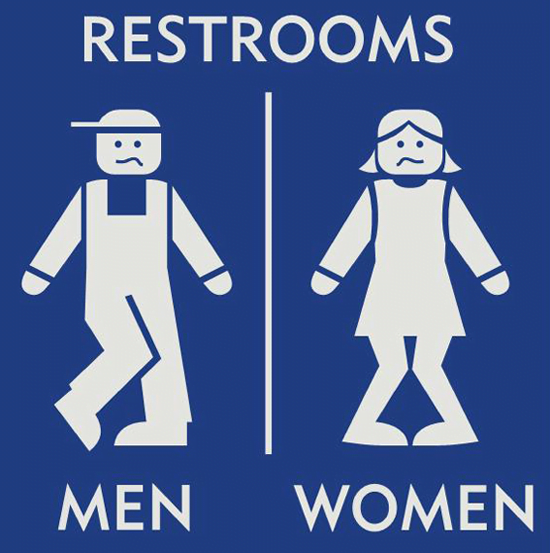What Situations Can Trigger A Paruresis Reaction?
There can be a whole range of different situations. I’ll explain it up by giving a few examples:
- A busy toilet in a public arena. Typically this could be a restaurant, bar, sports arena, theatre or concert hall. Any public restroom where others are either in the room or highly likely to come in.
- At someone else’s house or apartment. This could be a party or dinner party when there will always be other people around.
- In more extreme cases this could even be in your own home when you have visitors or guests.
- Even single, lockable toilets can represent a problem. Especially if there’s someone waiting or likely to try the handle!
You get the basic idea; anywhere there are people to either see or hear you passing urine the reaction triggers.
Paruretics are irrationally believing that those who can hear or see them are judging them or thinking unkind things about them. In fact, like all phobias, this fear is quite beyond rationality. The other person also goes to the loo and pees – but you will never stop to think that! The paruretic knows that deep down but can’t control the thoughts.
The result – an inability to pee.
Shy Bladder – Just How Bad Is It?
The severity differs from person to person. Left unchecked, will worsen over time.
There are varying degrees of severity. To some men it’s only an issue when in a compact, busy and full public restroom where they cannot choose where to stand and the urinals are close together with no privacy screens, to those higher up the scale it could be a smaller empty restroom with just a couple of urinals meaning that if someone else came in they would have to stand right next to them. To others, men and women, it could be that even if using a private cubicle they still have an issue and, at the most extreme level, even a restroom for one with a lock on the door presents an issue.
You get the picture I’m sure. The worse it gets the more restrictive life becomes.
The Effects Of Paruresis
The anxiety has the power to affect quality of life significantly. Many paruretics have reported that they have limited, restricted or even turned down travel because of their condition. It’s commonly reported that a third of sufferers avoid parties, public events, social events and even dates as a direct result of shy bladder syndrome. In more extreme cases job offers have been turned down because of urine drugs testing and jobs have been lost for the same reason.
So, you can see, that whilst the condition may first seem trivial and a source of amusement it can be life restricting or even life changing.
I’ve written a feature on the Impact Of Shy Bladder Syndrome which you may want to check out.
Shy Bladder Treatment
There’s always a cure so take heart. Sure, it may not be instant, it may not be easy but you CAN overcome the condition. At this point I need to add that whilst Paruresis is a psychological condition it is always recommended that you first consult with a medical professional to ensure there’s no underlying medical condition behind the symptoms.
All treatments are about relaxation in challenging environments and building confidence of situations. Most importantly though, it’s about changing your mindset and re-programming your minds irrational, sub-conscious response to the normal, rational response that we were all born with.
There are a number of popular and proven paruresis treatments which you may want to look at in more detail:
This is not an exhaustive list but it does cover the top recognised shy bladder treatments.



